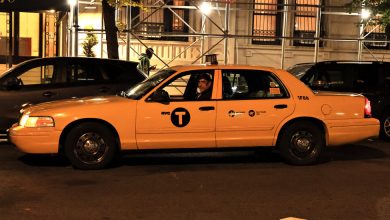Dead but Not Buried, Ex-President’s Body Sparks a Cross-Continental Fight

LUANDA, Angola — Even in death, Angola’s longtime ruler, José Eduardo dos Santos, is at the center of political infighting.
The former president died in Barcelona on July 8 at the age of 79, but when and where he will be buried has set off a cross-continental fight that has pitted the Angolan government and his widow against some of his adult children.
Mr. dos Santos’s death came just weeks before a crucial election. Angola’s governing party and current president, João Lourenço, along with Mr. dos Santos’s widow, want to bring his body home for a state funeral and burial in a Soviet-style mausoleum — the kind of spectacle that could rally support for a party struggling to stay in power.
But his daughter Welwitschia dos Santos is pushing for a private funeral and a discreet grave site in Spain, where his children can visit. She says she has the support of some of her siblings who, like her, face accusations of corruption in Angola and could be arrested if they return. They could also be trying to parlay the return of their father’s body to regain their place in Angola’s political elite.
With both sides fighting it out in a Spanish court, it is now up to a judge in Barcelona to decide the feud. The outcome could sway the August election in Angola, a country rich in oil and minerals on the west coast of southern Africa.
“People are just trying to use the body and all these related issues to advance their own personal agendas,” said Augusto Santana, a political analyst in Angola. He added that the incumbent president wants to use the death “for electoral purposes,” and the children to negotiate “the dropping of accusations related to corruption.”
Mr. dos Santos, one of Africa’s longest-serving leaders, was a towering figure in Angola for nearly four decades. At the front of the Popular Movement for the Liberation of Angola, or M.P.L.A., he emerged victorious from an independence war against colonial Portugal and then a decades-long civil war.
To his supporters, many of whom entered Angola’s moneyed elite, he shepherded the country out of violent turmoil to make it one of the world’s largest oil producers, its coastal capital dotted with skyscrapers.
But to his many detractors, he was a ruthless dictator who suppressed democracy and oversaw a an economy choked by corruption, with most Angolans living on less than $2 a day.
“I find it amazing that people are now pretending that dos Santos was a saint. He was not,” said Adolfo Tembo, 26, who sells toasted peanuts and bananas.
Mr. dos Santos had been living in self-imposed exile in Barcelona for three years. According to Welwitschia dos Santos, popularly known as Tchizé, he had said he wanted to be buried there.
He had become increasingly isolated from the party he so long controlled. His handpicked successor, Mr. Lourenço, who came to power in 2017, had turned on him, blaming the dos Santos administration for Angola’s economic malaise and prosecuting his children.
Mr. Lourenço and Mr. dos Santos attempted a rapprochement last year. Mr. dos Santos returned to Angola and was set to appear at the party’s conference. But then he learned that his son José Filomeno dos Santos would be sentenced to five years in prison for embezzling the state’s sovereign fund. The former president was further outraged by a plan to remove his face from Angola’s currency, Tchizé dos Santos said.
“My father was extremely humiliated the first time he returned to Angola, something he did against our judgment and advice, convinced of President Joao Lourenço’s desire to reach a sincere reconciliation,” Ms. dos Santos said, in an response by email to questions from The New York Times.
The visit disappointed Mr. Lourenço, too. His strategy to scapegoat the dos Santoses as the source of Angola’s corruption was backfiring, with figures from their era still senior in his government. His inability to right the economy alienated voters, according to Ricardo Soares di Oliveira, a professor of the international politics of Africa at Oxford University.
A June poll by the Mudei Civic Movement, a citizen-based election monitoring group, found the M.P.L.A. trailing 19 percent behind an opposition coalition containing UNITA, its former wartime foe.
Mr. dos Santos was admitted to the intensive care unit of Teknon clinic, a leading private medical center in Barcelona, on June 24 with heart and breathing difficulties. Three days later, Ms. dos Santos approached Spanish police and accused his caretakers of neglect.
His caretakers were his fourth wife, Ana Paula dos Santos, and his longtime personal doctor, João Abraão da Conceição Afonso. Lawyers for the two declined to comment. The Angolan government did not respond to questions, but confirmed they had hired lawyers for the wife and doctor.
Tchizé dos Santos accused the wife and the doctor of failing to care for him as his breathing deteriorated, and waiting a day to take him to the hospital after he collapsed in his bathroom on June 23.
Then, on July 4, four days before her father’s eventual death, Ms. dos Santos formally accused the wife and doctor of attempted homicide. She says she has the backing of her siblings.
José Filomeno dos Santos, the 44-year-old son of the late president, responded by email to questions, but sidestepped a question about where and when he wanted his father to be buried. He said, “The state has no constitutional obligation to assume my father’s burial. This decision rests with the family.”
He is in Angola, appealing a conviction on corruption charges, and said that because his passport has been seized, he was unable to be with his father in his last days.
When Mr. dos Santos died, the official cause of death was cardiac arrest. But in response to the daughter’s lawsuit, a judge ordered an autopsy. The preliminary results ruled out poisoning, according to Angola’s state-owned media. The Spanish authorities are awaiting the final result to guide their decision.
“If there is nothing, the body has to be handed over to the family,” Judge Francisco González Maíllo, said in an interview. He is the judge in Barcelona who will have to decide which family members get the body.
In the wake of Mr. dos Santos’s death, Tchizé dos Santos has spread the message that her father planned to back the opposition party, UNITA.
But a funeral in Angola could spell legal trouble for Ms. dos Santos and her siblings, several of whom are under criminal investigation. Isabel dos Santos, the eldest daughter, would be at risk of arrest if she returned, having failed to respond to a summons for questioning from state prosecutors in 2018.
Isabel dos Santos became a billionaire as she acquired stakes in Angola’s banking, telecommunications, construction and diamond industry, often through orders signed by her father. She is said to be the richest woman in Africa. When her father finally stepped down in 2017, she was head of the state oil company Sonangol. She has been accused of siphoning millions of dollars from the state company to her own business empire that stretched from Hong Kong to the United States.
In an email to The Times, Tchizé dos Santos dismissed reports that she and her siblings were attempting to negotiate for amnesty. Isabel dos Santos did not respond to a request for comment.
Angola’s attorney general, Hélder Pitta Grós, traveled to Spain as part of a government delegation to deal with the transfer of the president’s body, but his spokesman refuted reports that Mr. Grós had a mandate to negotiate an amnesty with the dos Santos siblings.
“The attorney general does not negotiate,” said ÁlvaroJoão, the spokesman.
Angola held a seven-day mourning period for its former leader. In lieu of a casket, a large portrait of Mr. dos Santos was erected in a government plaza in the capital, with a red carpet leading up to it while uniformed soldiers stood guard.
But the fight over Mr. dos Santos’ remains is of little concern to ordinary Angolans.
“Do you know how much my husband and I earn? And do you who know whose fault it is for the dire situations my family and clearly most of the Angolans now face?” asked Avenina de Vasco, 37, a street cleaner. “The M.P.L.A. and dos Santos ruled for very long time. So I don’t care whether he is buried here or in Europe or America.”
Gilberto Neto reported from Luanda, Angola, José Bautista from Madrid, Spain, and Lynsey Chutel from Johannesburg.





